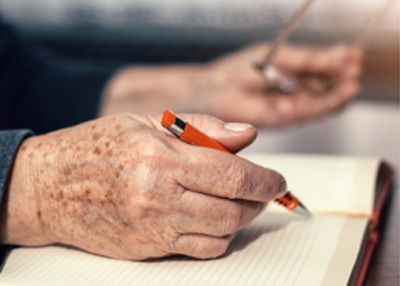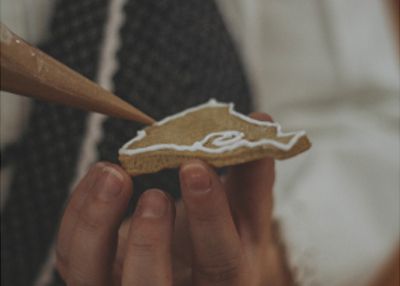Then and Now - Creating New Meaningful Relationships
Loss of memory and non-recognition of family members such as children or grandchildren is just as difficult for PwD as it is for family members.
For this reason, it is equally important to work with carers - family members and PwD together. Experts talk about the importance of caregivers creating a "new" relationship with a family member suffering from dementia, because in most cases, ties from the past are lost, which creates a great challenge for all members. The answer to the question "Do you remember?" PwD can't always give. For this reason, it is sometimes important to move away from the past and open the space for the present, to enable communication in other directions, to create new connections in the present time.
The pleasant spaces of museums, archives or libraries are ideal for organising workshops in which PwD and family members can participate. In some museums, the practice of holding such mixed workshops has proven to be extremely successful. During Advent, gingerbread decorating workshops are organised in the Museum of Slavonia, which are gladly visited by grandmothers with grandchildren and/or other family members.
Why is it useful?
Cultivating memory is achieved by talking about the moments that family members lived together, reviewing family heirlooms, nurturing family traditions such as preparing recipes or organising important family events. Even for the youngest members of the family, it is valuable to know the ancestors.
However, what creates unbreakable connections are events in the present. Educational workshops, especially those where you learn about traditions and customs, have a positive effect on mood and bonding between family members.
Social aspect
Educational workshops, especially those where you learn about traditions and customs, have a positive effect on mood and bonding between family members. On this occasion, we can hear how older people describe events from their childhood and thus teach the younger generation about the specialness of the time when they were young. How to prepare holiday cakes, how to celebrate religious holidays, how to make a toy... these are all good topics that we all like to talk about.
Creating a personal timeline can be a useful way to record important information about the person and help others understand and relate to them better. A personal timeline acts as a record of this information and can be shared with others to help them better understand and relate to the person with dementia. Creation of a personal timeline helps PwD share who they are, convey important information about themselves, and help enhance their sense of identity as well as help family members develop a closer bond with the person with dementia, through sharing their stories.
This module describes how we can create present connections based on reminiscing, discussion and handcrafting.
Activities:

 English
English  Polski
Polski  Deutsch
Deutsch  Hrvatski
Hrvatski  Italiano
Italiano  Ελληνικά
Ελληνικά  Svenska
Svenska 
